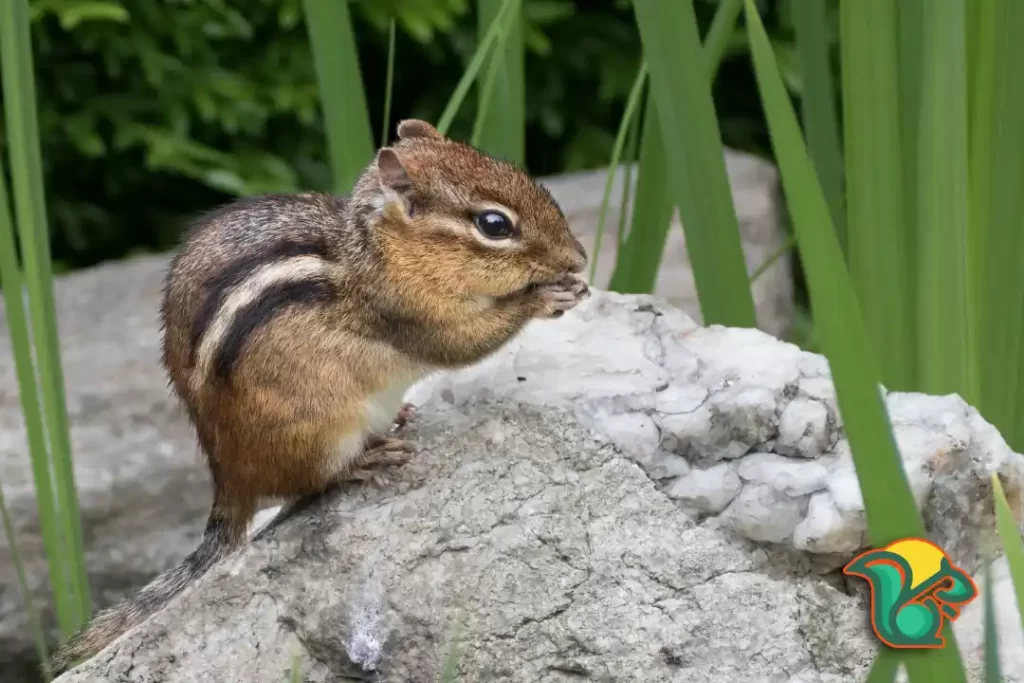How Long Do Chipmunks Live: Life, Death and Beyond
Planning to cage and pet the cutie little fellas is a dream come true. But wait, you don’t want a pet that dies soon and makes you cry, right? Before you go for a chipmunk, take a look at how long do chipmunks live? Are there any differences in the lifespan of different types of chipmunks?

Chipmunks Lifespan of Every Chipmunk Variation
Well, when you are surrounded by these creatures, you should check out are chipmunks destructive first. And then, talk about how long they live if you are interested in knowing them!
The lifespan of Chipmunks in Wild
Chipmunks are one of the smallest creatures if you talk about their species. As they are small, their lifespan is also small!
· The lifespan of Eastern Chipmunk
A chipmunk will live 2 years at least. On the other hand, they can live till 5 years if the environment supports them. However, the lifespan highly depends on so many things. The life of a chipmunk is different when it comes to the captive chipmunk. As a result, life expectancy is also different.
So if the question is- “how long do wild chipmunks live”, the answer will be 2 years to 5 years. On average, their lifespan is 3 years. But this is not the case for all the chipmunks. Only the Eastern Chipmunks will live for 3 years on average.
· The lifespan of Siberian Chipmunk
The life of a Siberian chipmunk is longer than this. If you go for the Siberian chipmunks, you can see them being alive for more than 6 years. At times, even in the wild, they can live 10 years or more!
· The lifespan of Alpine Chipmunk
When the Eastern and the Siberian chipmunks live 5 years or more the duration of living for the Alpine chipmunks is less. In the case of these, if they are living in the wild, they won’t survive more than 3 years. The average lifespan is 2 years or close.
· The lifespan of Allen’s Chipmunk
In the wild, these animals will live for about 8 years or so. The average lifespan is 6 years. They live a long life. If you talk about –how long do chipmunks live in Canada, we will tell you that they will last 2-5 years at best.
· The lifespan of Lodgepole Chipmunk
Among all the chipmunks, these die more than others. Though the lifespan is average, the weather condition is the reason for their death. They live 4 years on average. If your house is full of mice and you are thinking about keeping a chipmunk as a pet, take a look at “do chipmunks to keep mice away” first!
· The lifespan of Long-Eared Chipmunk
Not most people know about these chipmunks and so, imagining the life expectancy is tough. According to sources, these can live for about 5- 8 years if they are in the wild. The lifespan highly depends on the wilderness and the environment. It can be reduced if the environment isn’t good enough.
· The lifespan of Palmer’s Chipmunk
In the wild, Palmer’s chipmunks will live a comparatively short life. These are shorter than the regular chipmunks you see. They will last 1 year to 4 years or close. Also, don’t forget to take a look at how many chipmunks live together to clear your confusion!
· The lifespan of Hopi Chipmunk
Compared to the Eastern chipmunks and the Siberian ones, these last a very short period. They usually do not live more than 3-4 years. The average lifespan is 2 years to 3 years. Not much of them can cross 5 years of their age before death.
· The lifespan of Townsend’s Chipmunk
Compared to the Alpine chipmunk, Townsend’s chipmunks live a long life. The average duration of their lives is about 5 years or more. Talking about the reports, experts say that these chipmunks might last 3 years to 7 years in the wild.
For the small chipmunks, life in the wild is not easy; they face a lot of troubles along with diseases. Also, not all the chipmunks get the food they need for being alive. With natural deaths, unnatural deaths are not uncommon in the case of the little rodents. How do you expect them to live longer if they don’t get better food!
The lifespan of Chipmunks in Captive
If you are kept in the wild for long and you don’t get enough food, you won’t live as much as you can live in the civilized world, isn’t it? The same thing goes for the chipmunks. These small animals live in the wild and they love to do it.
But it reduces their life expectancy. In several surveys, it is seen that chipmunks can live more if you hold them captive. This is not only in the case of chipmunks but all the other rodents and such animals do great when it comes to captivity. So, how long do chipmunks live in captivity?
· The lifespan of Eastern Chipmunk
In short, the lifespan is more when you keep any chipmunk inside. But how long do chipmunks live in captivity or inside the house? With good food, necessities, and vital treatments, you can keep the eastern chipmunks alive for about 8-1- years or more! Yes, the lifespan extends to double when it comes to them living in a civilized area.
· The lifespan of Siberian Chipmunk
In the case of Siberian chipmunks, they already live a long life; and in captivity, they can live more than 11 years.
· The lifespan of Alpine Chipmunk
As we have told you before, these chipmunks live a short life and die soon in the wild. And when they are kept captive, they might live for about 5 years or close.
· The lifespan of Allen’s Chipmunk
When Allen’s chipmunks are kept captive, they last longer than 8 years. They will survive 11 years or more while held captive.
· The lifespan of Lodgepole Chipmunk
For the weather condition, they die soon in the wild. But even if you keep it in better weather, they will not last more than 5-6 years.
· The lifespan of Long-Eared Chipmunk
When kept in the wild, these chipmunks last a long period. If they are held captive, they can live more or less than 10 years.
· The lifespan of Palmer’s Chipmunk
In the case of holding these rodents captive, you can keep them alive for 5-7 years or more. However, not much information about captivity is available.
· The lifespan of Hopi Chipmunk
Though the lifespan of the Hopi chipmunks is short when they are in the wild, they can last for 5 to 9 years in captivity! If you feed him well, he lasts long.
· The lifespan of Townsend’s Chipmunk
We have already told you that in the case of these chipmunks, the duration of life is long. You can expect them to live more than 8 years to 10 years in captivity. In the wild, they usually lack food and die.
It’s not only about the food but in the wild, as they go through severe diseases, they don’t get proper treatment. When they are held captive, they can be treated if they go through diseases. We are talking about captivity because chipmunks are not the animals that you can pet!
No matter how perfectly you treat them with food and medicine, they will leave the cage once they find a way to go to the wild. In that case, you have to accept that wilderness is what they seek. So,
The lifespan of Chipmunks and Reasons of Death
If we think about the lasting period of the chipmunks, it seems a really short time for such a cute animal to live, right? But why is a chipmunk’s lifespan so short in the wild? What makes them die so soon?
Chipmunk Diseases
One of the major reasons for Eastern chipmunks living a short life is the diseases they go through. When it comes to the diseases spreading, they can easily spread via direct contact along with indirectly (fleas and ticks.)
Common Diseases
Among the diseases Rocky Mountain spotted fever to Leptospirosis and Hantavirus are common. If you have ever researched chipmunks, you must know that Salmonella and Rabies along with Plagues are everyday diseases that these rodents suffer.
If they do not get the necessary calcium, they can go through Metabolic Bone disease. They love nuts, we all know about it. But the nuts that have low calcium and high phosphorus as their ingredients, will suffer from this disease. These animals also suffer from upper respiratory infections and tooth issues.
Disease and Deaths
When the rodents will go through rabies, they will face deterioration of their brains. Biting another animal and acting aggressive is common. In the case of Rocky Mountain spotted fever, they will confront heart and lungs issues.
Even heart failure and lung failure can occur from this. If they are going through Metabolic Bone diseases, they will start losing fur and will go through bone fractures. The worst part is them losing appetite.
And if they don’t eat, they won’t recover! In terms of tooth issues, they can lose teeth along with having overgrowing teeth in some cases. Eventually, they cannot eat properly. And when they don’t eat, they die- that’s the rule of the wild!
Environment and Weather
Some rodents like the chipmunk and groundhogs go through hibernation. At times, the hibernation is small. But when the winter is long and it’s too cold outside, chances are, the hibernation period might extend.
They have to gather food and eat them so that they can survive the winter. At times, they eat too much. Though they mostly survive the winter, in places, these rodents die for hibernation. If the winter is long and they get out of hibernation soon, the chances of getting food around them are less.
In winter, there are fewer fruits, veggies, and seeds for animals like chipmunks. And this is when they keep searching for food and don’t get it. Naturally, an animal won’t live long if they don’t get enough food to stay alive!
Traps, Baits, and Predators
Another very important reason for chipmunks dying soon is the baits and traps we create to make them leave our property. Yes, we have our reasons to protect the property, but they surely die for us at times! Some animals like cats and others consider these rodents as their prey.
And so, hunting them isn’t a big deal for the predators like cats! This unnatural death is just a part of the eco-cycle, don’t be sad!
Wrap Up
No harm done if you love chipmunks. Moreover, they are cute and you can’t deny that! If you want to, keep them as your pet too! But before you do it, have a little research! The lifespan is not much, but you can increase it by keeping them captive!




